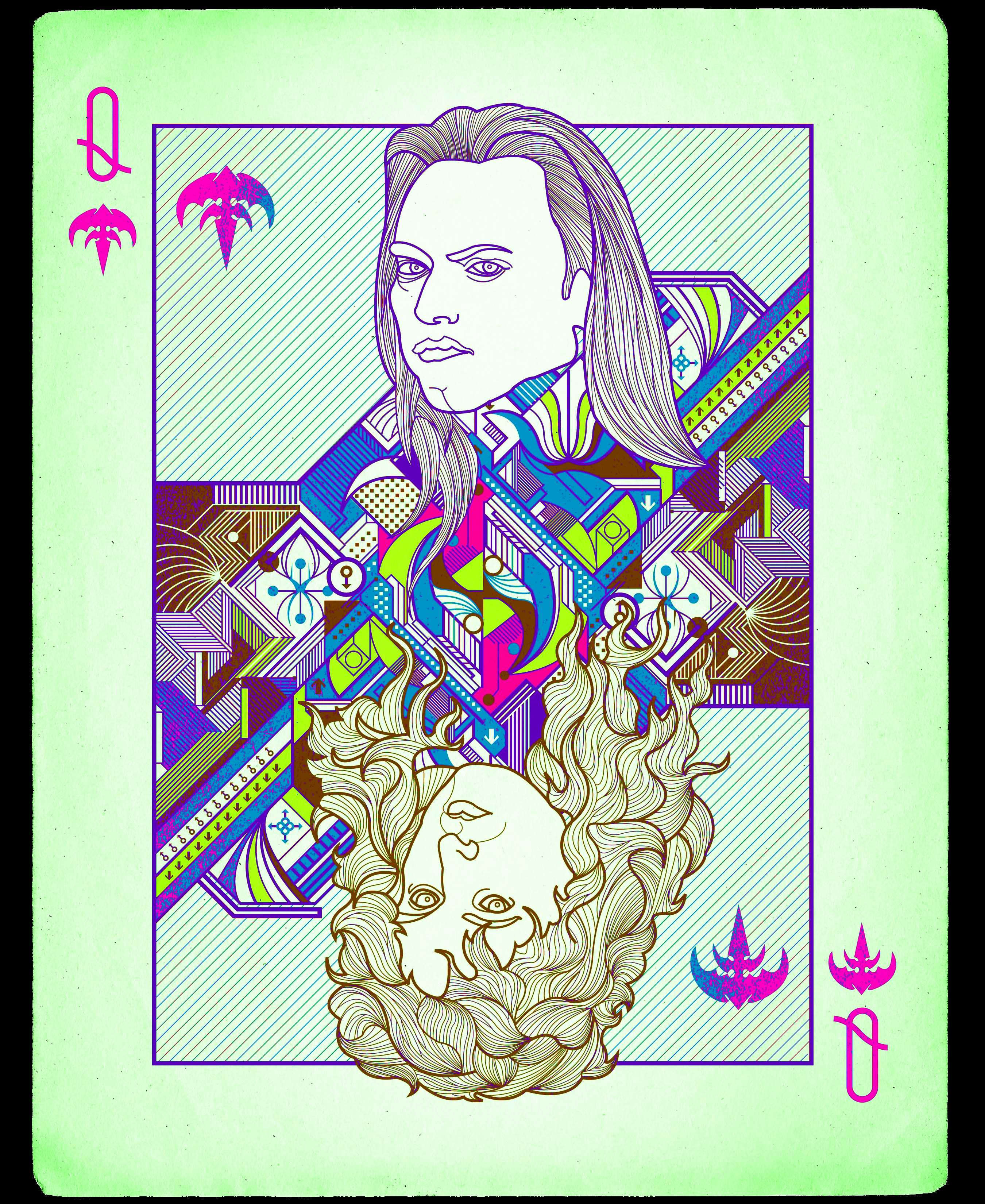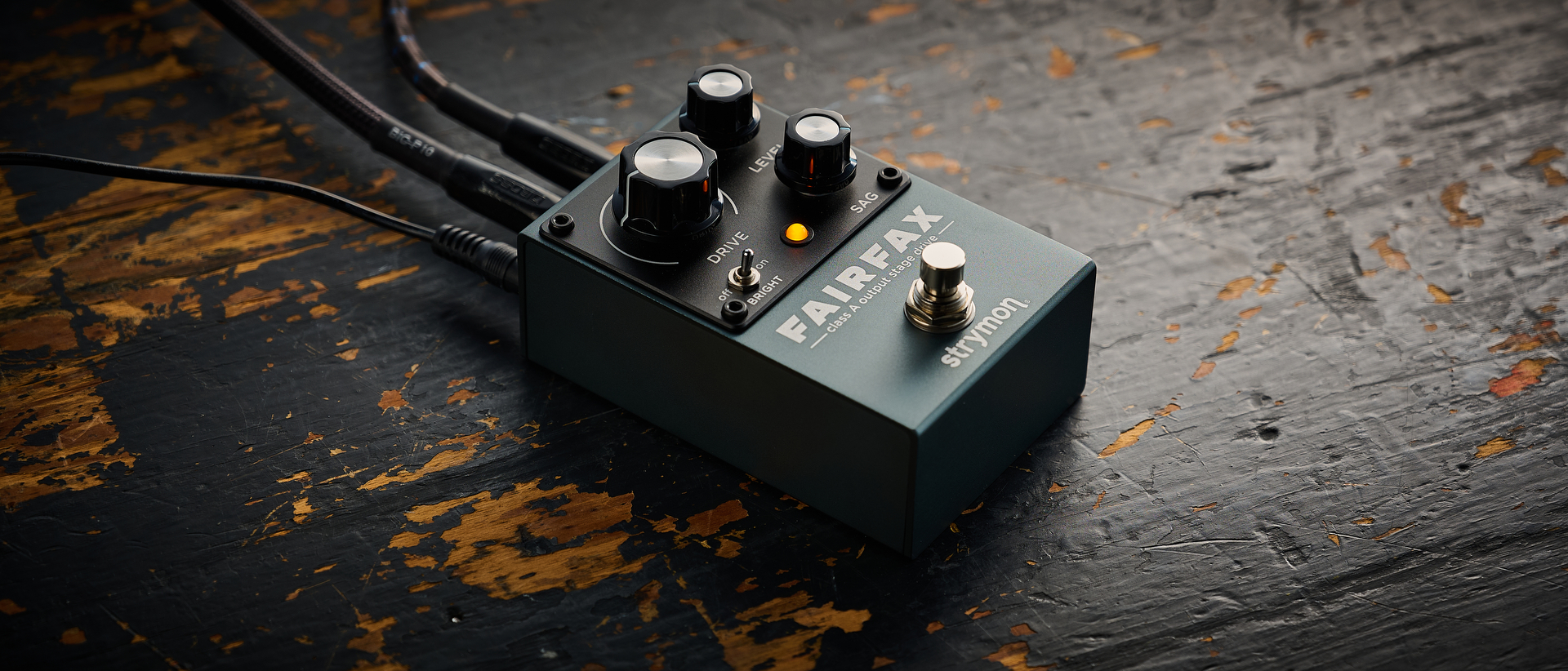A Pair of Queens
All the latest guitar news, interviews, lessons, reviews, deals and more, direct to your inbox!
You are now subscribed
Your newsletter sign-up was successful

This is an excerpt from the September 2013 issue of Guitar World magazine. For the rest of this story, plus more, check out the issue at the Guitar World Online Store.
Queensrÿche, the self-titled, 13th full-length studio album from the Seattle prog-metal vets, was released in the U.S. on June 25. It came on the heels of another new Queensrÿche studio album, released just two months earlier, titled Frequency Unknown. That album was, ostensibly, their 13th studio effort as well.
The events that transpired to make this seeming impossibility a reality constitute one of the more bizarre band breakups in rock history. On one side, there is the outfit behind Queensrÿche, which consists of three founding band members—guitarist Michael Wilton, bassist Eddie Jackson and drummer Scott Rockenfield—who have spent 30-plus years with the group. They are joined by guitarist and recent Queensrÿche player Parker Lundgren as well as new singer Todd La Torre, formerly of Crimson Glory.
On the other side is the Queensrÿche of Frequency Unknown, which features vocalist Geoff Tate, who has also been with the band since its inception in 1982. That group is rounded out by a supporting cast of metal vets like guitarist Kelly Gray, who has also played with Queensrÿche in recent years, former Quiet Riot and Whitesnake bassist Rudy Sarzo, and onetime AC/DC drummer Simon Wright.
In addition to their new albums, both acts have been touring under the Queensrÿche name. It’s a situation that is “obviously going to confuse some people,” Wilton admits, speaking with Guitar World by phone from his home in Seattle. How things got to this point is a matter of contention. Last year, while on tour in support of their 2011 studio album, Dedicated to Chaos, Queensrÿche became embroiled in a messy and quite public split. Tate was ejected from the band, and accusations, as well as lawsuits, began to fly. The battle in recent months has coalesced around who owns the rights to the Queensrÿche moniker, a valuable brand with three decades of history behind it, as well as associated imagery such as the band’s familiar “tri-ryche” logo. Last July, the Washington state superior court ruled that both sides could continue to use and benefit from the brand for the time being. A new court date is scheduled for November 18, at which time a judge will rule on which side will be the official Queensrÿche.
According to Tate, who spoke to Guitar World in an interview separate from Wilton’s, the lawsuit comes down to one thing: money. “It’s a corporate dispute,” he says. “And the judge will decide on the value of the brand and the corporation. There’s a formula to figure that out. It’s not about a moral thing or anything like that. It’s just a simple case of dollar exchange.”
In fact, money is a prime focus of the dispute. The original members in the Wilton-led version of Queensrÿche have alleged mismanagement of the band’s financial interests at the hands of their former manager—who also happens to be Tate’s wife, Susan. In his official court declaration, Wilton accuses Susan Tate of misdealings with merchandising companies, mishandling of tour and recording budgets, and running expenses for another of her acts, the Voodoos, through Queensrÿche’s accounts.
All the latest guitar news, interviews, lessons, reviews, deals and more, direct to your inbox!
But it's the group’s numerous creative and personal difficulties, which have been brought to light since the split, that have most captured the attention of fans and the music press. Regarding the former, the common narrative is that Queensrÿche retreated from the hard-edged, guitar-driven sound of their hit records, like 1988’s Operation: Mindcrime and 1990’s Empire, after Tate wrested creative control from his bandmates and took their sound in whatever stylistic direction he deemed appropriate. According to Wilton’s court declaration, the singer was calling the shots, which included refusing to play much of the band’s classic material in concert, conceptualizing oddball live jaunts, such as the ill-fated 2010 Queensrÿche Cabaret tour, and employing whatever co-writers, producers and, in some cases, musicians, he desired to assist on recent Queensrÿche albums like Operation: Mindcrime II, American Soldier and Dedicated to Chaos. To this last point, Wilton says, “As an artist, as a guitar player, it’s not too much fun when your parts are being replaced or you don’t even know if they’re going to make the CD of the band you’ve been with for 30 years. It’s a little disheartening, to say the least.”
Tate, however, suggests that his bandmates neglected to participate creatively in Queensrÿche’s projects. In recent years, he says, “There was me writing and coming up with directions and ideas and concepts, and then the other guys were contributing performances in the studio. So we had to find other people to work with us in order to make a record and make things happen.”
For the rest of this story, plus more, check out the September 2013 issue at the Guitar World Online Store.
Rich is the co-author of the best-selling Nöthin' But a Good Time: The Uncensored History of the '80s Hard Rock Explosion. He is also a recording and performing musician, and a former editor of Guitar World magazine and executive editor of Guitar Aficionado magazine. He has authored several additional books, among them Kurt Cobain: Montage of Heck, the companion to the documentary of the same name.

